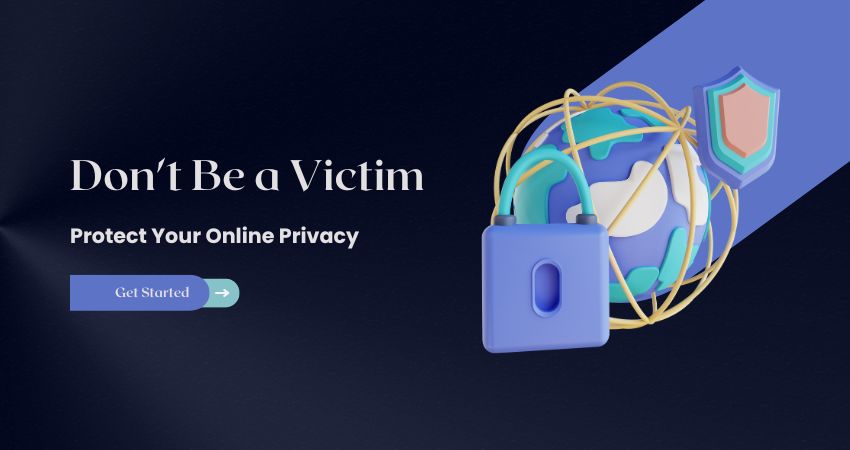Table of Contents
Introduction
In today’s digital age, ensuring your online privacy is more crucial than ever. This blog will walk you through the fundamental steps to protect your personal information and shield yourself from potential cyber threats.
Understanding Online Privacy
What is online privacy?
Online privacy revolves around your control over the information you share on the internet and who can access it. This encompasses your personal data, digital communications, and online browsing habits.
Common online privacy threats
Data breaches: These occur when hackers gain unauthorized access to databases containing personal information.
Identity theft: Criminals use stolen personal information for fraudulent activities, posing as you.
Phishing attacks: Deceptive emails or websites trick individuals into disclosing sensitive information.
Taking Control of Your Online Privacy
Strong Passwords
Creating and managing secure passwords: We’ll provide you with tips on crafting strong, unique passwords.
Password managers: Learn how these tools can help you securely store and manage your passwords.
Two-factor authentication (2FA)
How 2FA works: Get a clear understanding of the extra layer of security it offers.
Implementing 2FA: Discover step-by-step instructions on enabling 2FA across various platforms and services.
Keep Software and Devices Updated
The importance of software updates: Learn why ignoring updates can put your security at risk.
Automatic updates vs. manual updates: Weigh the pros and cons of both approaches.
Secure Browsing Habits
Avoiding suspicious websites: Find out how to identify and avoid potentially harmful sites.
HTTPS and its significance: Explore why secure connections are essential for safeguarding your privacy.
Social Media Privacy Settings
Adjusting privacy settings: Follow our guide to enhancing your privacy on social media platforms.
Limiting data exposure: Discover ways to minimize the information you share on social networks.
Public Wi-Fi Awareness
Risks associated with public Wi-Fi: Understand the dangers of using unsecured networks.
Using VPNs for protection: Learn how virtual private networks can keep your data safe when using public Wi-Fi.
Protecting Your Personal Information
Data Encryption
What is data encryption? Get an explanation of encryption and its role in preserving privacy.
Encrypting sensitive files and communications: We’ll introduce you to tools and methods to secure your data.
Avoiding Phishing Scams
Recognizing phishing attempts: Learn the red flags and warning signs of phishing emails.
Reporting phishing emails: Find out how you can help combat phishing attempts.
Identity Protection
Monitoring credit reports: Discover the importance of keeping an eye on your financial health.
Freezing credit if necessary: Learn proactive steps to prevent identity theft.
Email Privacy
Encrypting email communications: Ensure your emails remain private and secure.
Securing your email account: Explore best practices for protecting your email from prying eyes.
Privacy Tools and Resources
VPNs (Virtual Private Networks)
How VPNs work: Gain an understanding of the technology behind VPNs.
Choosing the right VPN service: Find factors to consider when selecting a VPN service.
Antivirus and Antimalware Software
The role of antivirus software: Learn how it detects and safeguards against threats.
Recommended antivirus programs: Discover a list of trusted antivirus solutions.
Privacy-focused Browsers
Browsers that prioritize privacy: Explore an overview of browsers designed with your privacy in mind.
Browser extensions for enhanced privacy: Find add-ons to boost your online security.
Online Privacy Guides and Services
Websites and resources for staying informed: Locate trustworthy sources for staying updated on online privacy.
Professional privacy services: Learn about expert assistance available when you need it.
Staying Informed and Evolving Threats
Staying updated on privacy news
Privacy blogs and news outlets: Find reliable sources for the latest developments in online privacy.
Security newsletters: Consider subscribing to newsletters for timely updates.
Emerging online privacy threats
New cyberattack techniques: Understand how cybercriminals are constantly evolving their tactics.
Evolving privacy concerns: Stay vigilant about emerging privacy issues.
FAQs
Why does online privacy matter?
What are some basic steps I can take to keep my online privacy safe?
What tools and strategies work best to protect my online privacy?
How can I spot and avoid online privacy threats?
What should I do if my online privacy gets compromised?
Conclusion
In conclusion, safeguarding your online privacy is not just important but entirely achievable with the right knowledge and tools. By implementing the strategies discussed in this guide, you can take control of your digital life and significantly reduce the risk of falling victim to online privacy breaches. Don’t delay; start protecting your online privacy today.
Read More Articles
Cyber Threats Uncovered: Are You at Risk?
Cyber Security Trends: What’s Hot in 2023
Cyber Hygiene: A Daily Routine for Online Safety
Cyber Security in the Workplace: Best Practices
The Ultimate Guide to Cyber Security Essentials

